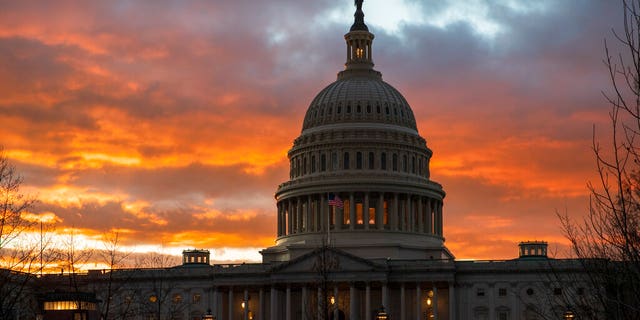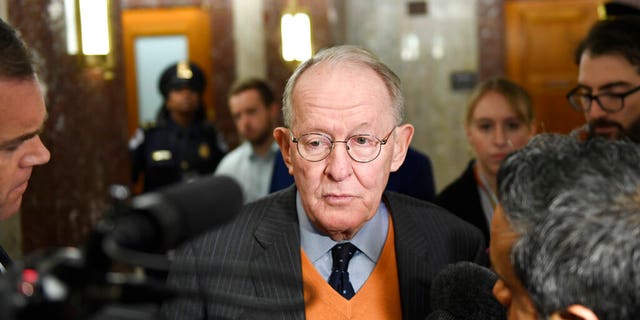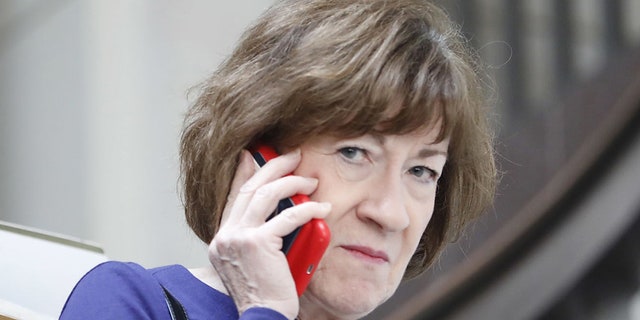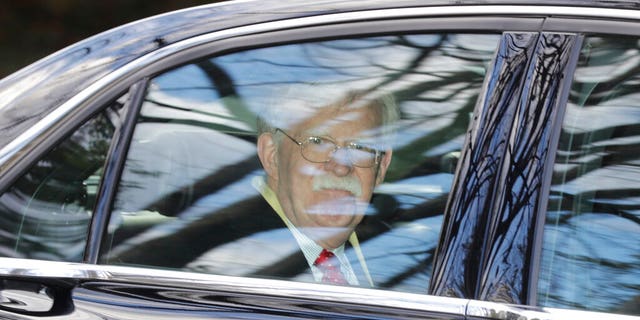
WASHINGTON
(AP) — The Senate narrowly rejected Democratic demands to summon
witnesses for President Donald Trump’s impeachment trial late Friday,
all but ensuring Trump’s acquittal in just the third trial to threaten a
president’s removal in U.S. history. But senators pushed off final
voting on his fate to next Wednesday.
The
delay in timing showed the weight of a historic vote bearing down on
senators, despite prodding by the president eager to have it all behind
him in an election year and ahead of his State of the Union speech
Tuesday night.
Trump
and Senate Majority Leader Mitch McConnell spoke by phone to lock in
the schedule during a tense night at the Capitol as rushed negotiations
proceeded on and off the Senate floor. The trial came to a standstill
for about an hour. A person unauthorized to discuss the call was granted
anonymity to describe it.
The
president wanted to arrive for his speech at the Capitol with acquittal
secured, but that will not happen. Instead, the trial will resume
Monday for final arguments, with time Monday and Tuesday for senators to
speak. The final voting is planned for 4 p.m. Wednesday, the day after
Trump’s speech.
Trump’s
acquittal is all but certain in the Senate, where his GOP allies hold
the majority and there’s nowhere near the two-thirds needed for
conviction and removal.

Nor will he face potentially damaging, open-Senate testimony from witnesses.
Despite
the Democrats’ singular focus on hearing new testimony, the Republican
majority brushed past those demands and will make this the first
impeachment trial without witnesses. Even new revelations Friday from
former national security adviser John Bolton did not sway GOP senators,
who said they’d heard enough.
That
means the eventual outcome for Trump will be an acquittal “in name
only,” said Rep. Val Demings, D-Fla., a House prosecutor, during final
debate.
Trump
was impeached by the House last month on charges that he abused power
and obstructed Congress as he tried to pressure Ukraine to investigate
Democratic rival Joe Biden, using military aid as leverage as the ally
fought Russia. He is charged with then blocking the congressional probe
of his actions.
Senators
rejected the Democrats’ effort to allow new witnesses, 51-49, a near
party-line vote. Republicans Susan Collins of Maine and Mitt Romney of
Utah voted with the Democrats, but that was not enough.
Senate
Democratic leader Chuck Schumer called that decision “a tragedy on a
very large scale.” Protesters’ chants reverberated against the walls of
the Capitol.
But Republicans said Trump’s acquittal was justified and inevitable.
“The sooner the better for the country,” said Sen. Lindsey Graham, a Trump confidant. “Let’s turn the page.”
The
next steps come in the heart of presidential campaign season before a
divided nation. Democratic caucus voting begins Monday in Iowa, and
Trump gives his State of the Union address the next night. Four
Democratic candidates have been chafing in the Senate chamber rather
than campaigning.
The
Democrats had badly wanted testimony from Bolton, whose forthcoming
book links Trump directly to the charges. But Bolton won’t be summoned,
and none of this appeared to affect the trial’s expected outcome.
Democrats forced a series of new procedural votes late Friday to call
Bolton and White House acting chief of staff Mick Mulvaney, among
others, but all were rejected.
In
an unpublished manuscript, Bolton has written that the president asked
him during an Oval Office meeting in early May to bolster his effort to
get Ukraine to investigate Democrats, according to a person who read the
passage and told The Associated Press. The person, who was not
authorized to disclose contents of the book, spoke only on condition of
anonymity.
In
the meeting, Bolton said the president asked him to call new Ukrainian
President Volodymyr Zelenskiy and persuade him to meet with Trump’s
personal lawyer, Rudy Giuliani, who was planning to go to Ukraine to
coax the Ukrainians to investigate the president’s political rivals.
Bolton writes that he never made the call to Zelenskiy after the
meeting, which included acting chief of staff Mick Mulvaney and White
House Counsel Pat Cipollone.
The
revelation adds more detail to allegations of when and how Trump first
sought to influence Ukraine to aid investigations of his rivals that are
central to the abuse of power charge in the first article of
impeachment.
The story was first reported Friday by The New York Times.
Trump issued a quick denial.
“I
never instructed John Bolton to set up a meeting for Rudy Giuliani, one
of the greatest corruption fighters in America and by far the greatest
mayor in the history of NYC, to meet with President Zelenskiy,” Trump
said. “That meeting never happened.”
Key
Republican senators said even if Trump committed the offenses as
charged by the House, they are not impeachable and the partisan
proceedings must end.
“I
didn’t need any more evidence because I thought it was proved that the
president did what he was charged with doing,” retiring GOP Sen. Lamar
Alexander of Tennessee, a late holdout, told reporters Friday at the
Capitol. “But that didn’t rise to the level of an impeachable offense.”
Republican
Sen. Lisa Murkowski of Alaska said she, too, would oppose more
testimony in the charged partisan atmosphere, having “come to the
conclusion that there will be no fair trial in the Senate.″ She said,
“The Congress has failed.”
Eager
for a conclusion, Trump’s allies nevertheless suggested the shift in
timing to extend the proceedings into next week, acknowledging the
significance of the moment for senators who want to give final speeches.
To
bring the trial toward a conclusion, Trump’s attorneys argued the House
had already heard from 17 witnesses and presented its 28,578-page
report to the Senate. They warned against prolonging it even further.
The House impeached Trump largely along party lines after less than
three months of formal proceedings, making it the quickest, most
partisan presidential impeachment in U.S. history.
Some senators pointed to the importance of the moment.
“What do you want your place in history to be?” asked one of the House managers, Rep. Jason Crow, D-Colo., a former Army Ranger.
To
hear more witnesses, it would have taken four Republicans to break with
the 53-seat majority and join with all Democrats in demanding more
testimony. But that effort fell short.
Chief
Justice John Roberts, in the rare role presiding over the impeachment
trial, could break a tie, but that seemed unlikely. Asked late Friday,
he told senators it would be “inappropriate.”
Murkowski noted in announcing her decision that she did not want to drag the chief justice into the partisan fray.
As protesters chanted outside the Capitol, some visitors watched from the Senate galleries.
Bolton’s
forthcoming book contends he personally heard Trump say he wanted
military aid withheld from Ukraine until it agreed to investigate the
Bidens. Trump denies saying such a thing.
The
White House has blocked its officials from testifying in the
proceedings and objected that there are “significant amounts of
classified information” in Bolton’s manuscript. Bolton resigned last
September — Trump says he was fired — and he and his attorney have
insisted the book does not contain any classified information.
___
Associated
Press writers Alan Fram, Andrew Taylor, Matthew Daly, Laurie Kellman,
Deb Riechmann and Padmananda Rama contributed to this report.


















